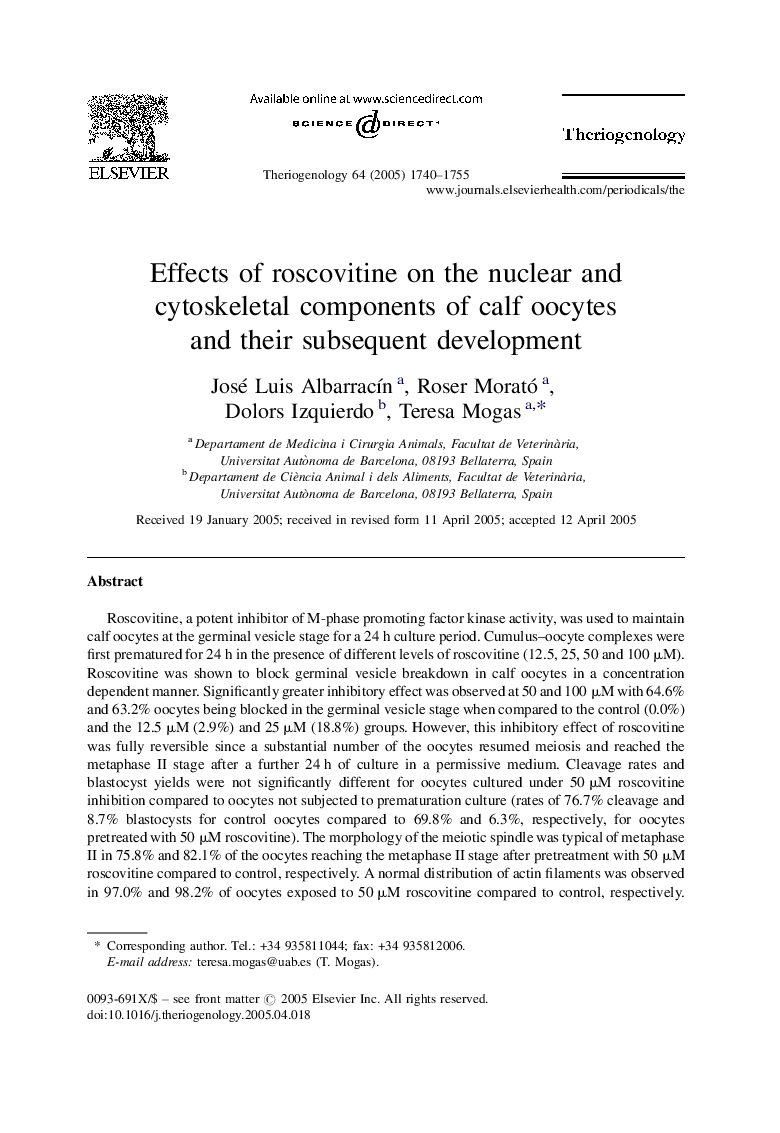| Article ID | Journal | Published Year | Pages | File Type |
|---|---|---|---|---|
| 10893801 | Theriogenology | 2005 | 16 Pages |
Abstract
Roscovitine, a potent inhibitor of M-phase promoting factor kinase activity, was used to maintain calf oocytes at the germinal vesicle stage for a 24 h culture period. Cumulus-oocyte complexes were first prematured for 24 h in the presence of different levels of roscovitine (12.5, 25, 50 and 100 μM). Roscovitine was shown to block germinal vesicle breakdown in calf oocytes in a concentration dependent manner. Significantly greater inhibitory effect was observed at 50 and 100 μM with 64.6% and 63.2% oocytes being blocked in the germinal vesicle stage when compared to the control (0.0%) and the 12.5 μM (2.9%) and 25 μM (18.8%) groups. However, this inhibitory effect of roscovitine was fully reversible since a substantial number of the oocytes resumed meiosis and reached the metaphase II stage after a further 24 h of culture in a permissive medium. Cleavage rates and blastocyst yields were not significantly different for oocytes cultured under 50 μM roscovitine inhibition compared to oocytes not subjected to prematuration culture (rates of 76.7% cleavage and 8.7% blastocysts for control oocytes compared to 69.8% and 6.3%, respectively, for oocytes pretreated with 50 μM roscovitine). The morphology of the meiotic spindle was typical of metaphase II in 75.8% and 82.1% of the oocytes reaching the metaphase II stage after pretreatment with 50 μM roscovitine compared to control, respectively. A normal distribution of actin filaments was observed in 97.0% and 98.2% of oocytes exposed to 50 μM roscovitine compared to control, respectively. These results demonstrate the feasibility of maintaining calf oocytes in artificial meiotic arrest without compromising their subsequent developmental competence.
Related Topics
Life Sciences
Agricultural and Biological Sciences
Animal Science and Zoology
Authors
José Luis AlbarracÃn, Roser Morató, Dolors Izquierdo, Teresa Mogas,
